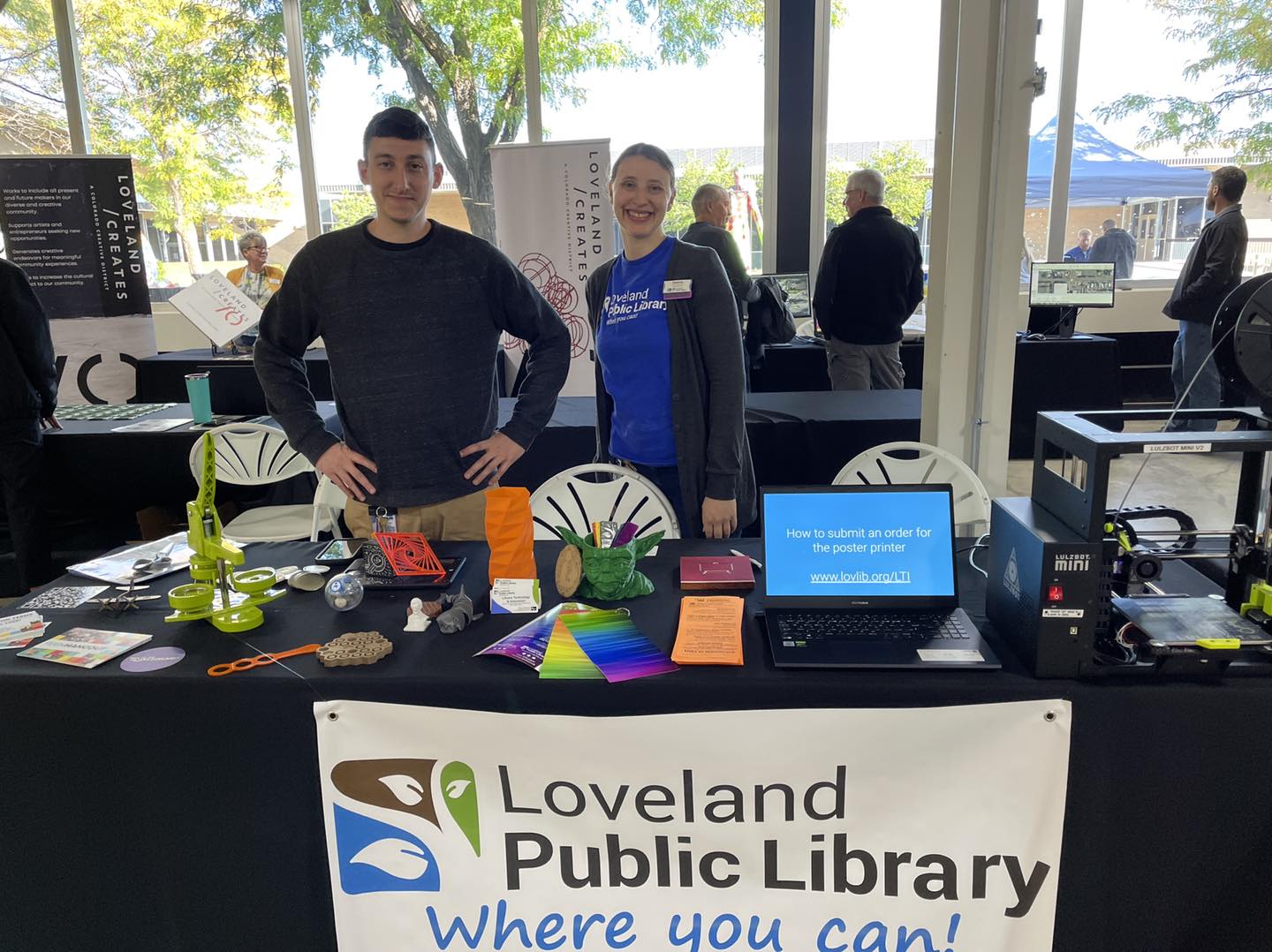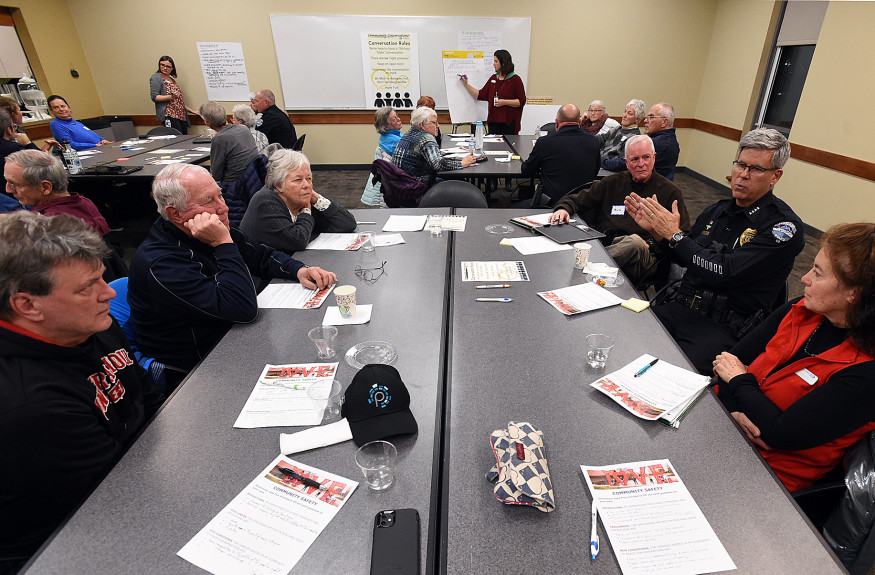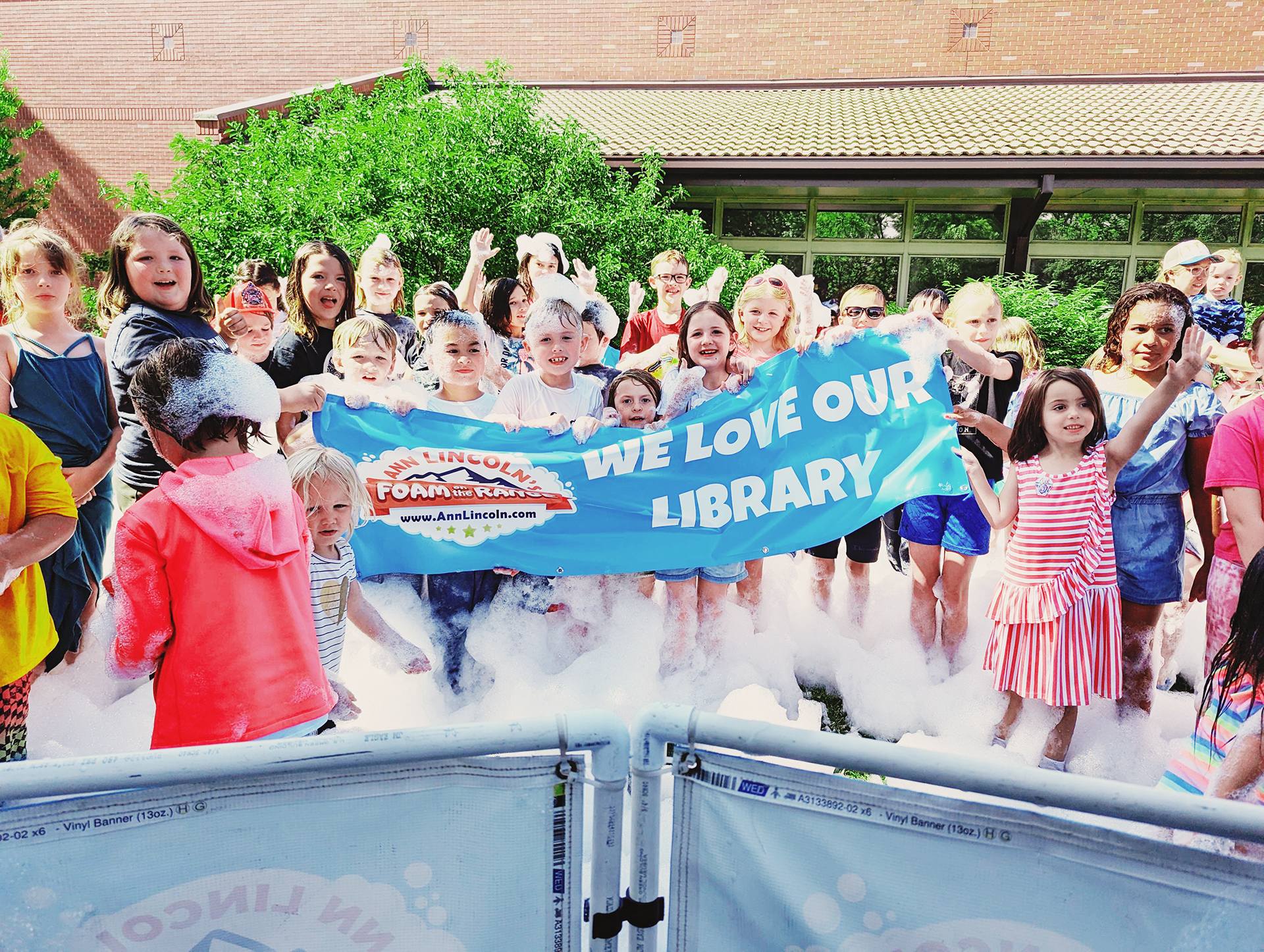Creating a community-led library
Loveland Public Library's u-lab initiative in action

Libraries are increasingly turning to community-led approaches to ensure that their services and resources meet local needs effectively. This process involves actively including community members in decision-making processes, but the path to getting there can look different from library to library. We spoke with Loveland Public Library (Colorado) Director Amy Phillips to learn more about how her library is using a method called u-lab to guide their efforts to better understand community needs and align them with planned outreach efforts.
U-lab is a collection of open-access online courses based on Theory U, a change management method developed by researchers at MIT. After participating in online discussions through u-lab, Amy saw the potential to use this strategy at Loveland. When the George Floyd protests began gaining momentum in 2020, Loveland library staff wanted to respond with resources for their community, and Amy thought u-lab could be a promising tool to guide the project.
A new path to community collaboration
U-lab is part of the larger ecosystem, which offers programs, certifications, learning resources, and on-demand courses. U-lab course tracks are designed for either individuals or groups. The courses are free, although an application is required to participate in u-lab 2X, the group track. The application process is intentionally simple and accessible to maximize impact and lower the barrier to entry. Once a group is accepted, all resources are free, including four live online trainings and a toolkit to help guide the process for project participants.
“Instead of just popping out a fully formed program like a book club or a speaker and saying, ‘Here you go,’ it’s a chance for us to explore what’s happening in the community, where the community is at, and what the community needs,” Amy explained.
Initially, the Loveland team wanted to consider developing an anti-racism toolkit, but the project outcome changed as they went through the u-lab steps and gathered community feedback.
“As we went along in the process, we found that there were different needs in the community that we originally had not anticipated,” Amy said. “And that was really one of the best things that came out of it—that we knew what we wanted, but we didn't know what the community wanted.”
Partnering with Loveland community members

Loveland Public Library
Loveland, Colorado is a quickly expanding community of around 80,000 people, located an hour north of Denver. The demographics of the city are also changing and evolving in terms of political views, age, ethnicity, gender identity, and sexual orientation—all factors that are important to consider when planning library programs that serve the community holistically. This kind of rapid expansion comes with both growing pains and opportunities to fill needed gaps in community services—all factors that contributed to an ideal time to try a new approach like u-lab.
Amy also emphasized the importance of finding resources that are accessible and affordable, which made u-lab’s free resources a great fit for the library. The program is scalable, and timelines are flexible.
Diving into u-lab
The u-lab process blends elements of other community-led planning models with design thinking, with emphasis placed on examining and understanding the environment you’re working in—referred to as the ecology. The process is also rooted in a concept called appreciative inquiry—guiding project leaders to ask introspective questions before each step of the process.
Like other community-led models, u-lab recommends starting by forming a core group of project leaders, and then identifying key community partners and beginning to cultivate working relationships grounded in trust. Initially, this group included a core team of library staff and community partners, including representatives from organizations like the Salvation Army and local school districts.
The appreciative inquiry model helps to inform the process, especially while you’re building your team of project participants and stakeholders. Amy gave some examples of questions her team asked throughout this process, like “What is your focus in the community? What excites you about what you're doing? What are some of the challenges you’ve met? How do you see the library fitting in with this work? And, who else should we be talking to?”
Amy emphasized that this final question about who else we should be talking to is key in continuing to facilitate the network-building that is so crucial to a successful project.
Through asset mapping exercises, both in-person and virtual, using tools ranging from Legos to online whiteboards, the team assessed current community resources and envisioned future possibilities.
“The first thing you do is to get a picture of what currently is in the community, and that's actually a lot of fun,” Amy said. “You can either do it in person with things like LEGOS and pipe cleaners and milk cartons and things like that, or you can do it online on a whiteboard.”
An unexpected result
Over the span of a year, the project evolved from initial discussions on an anti-racism toolkit to addressing broader community desires for targeted outreach and a central information hub.
“We started out with the idea of an anti-racism toolkit, and what we ended up hearing was people needed space to come together, and access a clearinghouse of information and resources [on social justice issues].”
Project outcomes included offering tables for organizations to showcase their work and resources, partnering on programming to highlight community efforts, and facilitating connections between organizations for mutual support. The library is also developing plans for mobile outreach using a van to bring resources directly to communities, to address gaps in accessibility and help more members of the community engage with the library.
Central to their efforts is promoting library spaces as hubs for community empowerment and support on social justice issues. This evolution showed that u-lab methods can grow and adapt to projects of all sizes, always keeping a strong focus on community impact and empowerment.
The community response to the library’s efforts has been positive. Cultivating intentional relationships and seeking community input has helped build trust in the library as a supportive and inclusive institution, and the team hopes to build on this positive experience with their next initiative.
Looking back, looking forward

Asking questions is just as important at the end of the project as it is throughout all the iterations that led there. Amy described how valuable this reflection is when assessing the project’s success: “It isn't just getting data; it's reflecting on what we’ve learned.”
U-lab offers tools and recommendations to help participants measure outcomes, including a story canvas, which guides participants through the process of building and tracking outcomes at multiple points throughout a project.
What’s next for Loveland? The library team plans to build on the success of their first project by tackling adult literacy needs in the community, including digital literacy and English language learning. While they know adult literacy is a need in the community, they’re putting their lessons learned from the first project into action, starting with an open-ended mindset, and allowing their community partners to help guide them to the eventual outcome. And Amy’s biggest piece of advice for other libraries considering u-Lab: “Just be aware that this is a journey, and keep an open mind and adjust.”
Loveland Public Library’s openness to try a new path to planning helped them empower their community through inclusive programming and resources. Through collaborative efforts, they've identified and met local needs, especially in areas like social justice and supporting marginalized groups. This approach has made their initiatives more inclusive, responsive, and sustainable. Stay tuned for what’s next, and let us know if your library decides to give u-lab—or another community-led planning process—a try.
Additional resources
- u-school for Transformation: Learn more about the background and origins of the u-school.
- u-lab cycle: Get started here—browse all u-lab learning opportunities.
- u-lab 2x: Learn more about the team-based u-lab track, hosted each year over a four-month period, free for all participants. A simple application is required.
- u-school tools: U-school methods and tools, which are freely available for everyone to use, including 3D mapping, stakeholder interviews, the Four Levels of Listening, and more.
- Theory U: Explore the philosophical framework behind u-School and u-Lab, with links to books, videos, and other resources.
